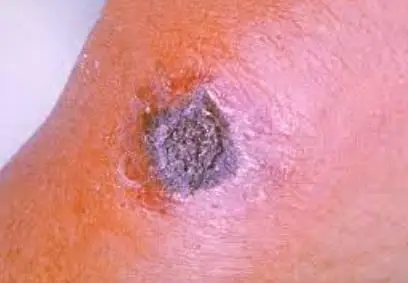Breaking News
TOP STORIES: Things you need to know about anthrax disease
The common types of anthrax are: Cutaneous anthrax: an infection where bacteria enter the body through a cut or sore on the skin; Gastrointestinal anthrax: an infection that results from the consumption of undercooked meat from an infected animal; Inhalation (pulmonary) anthrax: Infection develops when the patient breathes in anthrax spores.

The Federal Government confirmed on Monday that Nigeria recorded its first case of anthrax disease in a mixed livestock farm in Niger State.
The Federal Ministry of Agriculture and Rural Development officially confirmed the development in a statement signed by the Chief Veterinary Officer of Nigeria, Columba Vakuru.
Here are key things you need to know about anthrax disease.
1. Anthrax is caused by a bacterium called Bacillus anthracis which occurs naturally in soil. It can stay hidden for years.
2. Anthrax spreads through spores. Veterinarians, agricultural workers, livestock producers, hunters, and butchers are at high risk when they come in contact with infected animals or contaminated animal products.
3. The best way to prevent anthrax in animals is through vaccination.
4. Always ensure that you give the best care to your animals.
5. Have access control over your facility by limiting animal movement, limiting access to the farm, and cleaning equipment before and after.
6. Avoid slaughtering sick animals. You should rather isolate such animals and contact your vet for proper care.
7. If you or someone you know is exhibiting symptoms of Anthrax disease, seek medical attention immediately.
8. The common types of anthrax are: Cutaneous anthrax: an infection where bacteria enter the body through a cut or sore on the skin; Gastrointestinal anthrax: an infection that results from the consumption of undercooked meat from an infected animal; Inhalation (pulmonary) anthrax: Infection develops when the patient breathes in anthrax spores.
9. Before slaughter, watch closely for any indications of illness in any animal that will be killed for consumption or sale.
10. The Federal Ministry of Agriculture and Rural Development or the Nigeria Centre for Disease Control and Prevention should be your first point of contact in the case of any suspected case.




















